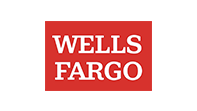‘Breaking Down Barriers’ With Braille
Students from the National Federation of the Blind’s BELL Academy are learning Braille, banking, and other independent living skills to help prepare them for the future
‘Breaking down barriers’ with Braille
In his work with blind and visually impaired people in Utah, Everette Bacon has noticed something. As some young adults decide it is time to start their careers or attend college, they suddenly realize they are not prepared. In fact, they might be functionally illiterate.
“A lot of kids that have low vision and even blindness aren’t able to get Braille regularly in the classroom,” Bacon said. “They might be able to listen to some kind of technology in a listening and audio format, but they aren’t actually able to read. That is a serious problem because there are times when audio is not always available — and Braille can be available on a regular basis.”
This lack of preparedness was one of the reasons the National Federation of the Blind started its BELL (Braille Enrichment for Literacy and Learning) Academy, said Bacon, who is president of the Utah affiliate.
“For the most part, the average teacher doesn’t have that ability to teach Braille, and so we feel like if we can supplement these kids’ lives with two solid weeks of Braille, we’ll get them excited about it,” Bacon said. “We’ll get them wanting to use it on a regular basis.”
One story, two experiences: Please visit Wells Fargo Stories to watch two videos which present the same story in two different ways. The first includes audio descriptions to translate the visual information verbally. Watch both videos to compare the differences and particpate in a poll about your experience
‘Capable and confident individuals’
The BELL Academy, which is being sponsored by Wells Fargo for the third year, provides blind and low vision children ages 4-12 with Braille instruction and hands-on learning activities in a day program or residential setting at 45 locations across the country. During the two-week program, participants make crafts, play games, and participate in projects, while also learning independent living skills like using a cane, interacting with blind adults who serve as mentors, and going on field trips to sites related to the curriculum.
“The BELL Academy program is one of the ways that the National Federation of the Blind not only promotes literacy, but also puts our philosophy about blindness into action,” said Mark Riccobono, president of the National Federation of the Blind. “In addition to exposing them to Braille, we want these children, as well as their families, to understand that their blindness does not define them and does not need to hold them back. This powerful program begins or enhances a process of lifelong learning that will turn these young people into capable, confident adults who can and will live the lives they want.”
Some of the life skills taught include handling money and banking. For the first time, kids participating at some of the BELL Academy chapters this year are visiting select Wells Fargo branches for a hands-on tour focusing on the purpose and use of money, savings and checking accounts, and ATM services. While at a branch in Salt Lake City in June, BELL Academy participants participated in a coin sorting contest, learned how to fold and organize paper bills, felt the thickness of the vault door, and used the ATM with a Braille debit card and machine, among other activities.
“I feel like we learned a lot about how they do their banking, which is important as we have clients coming in needing us to help them and understand what their needs are — and how to meet those needs,” said Kyle Poulter, a banker for Wells Fargo in Salt Lake City. “It was an absolute blast to have them here with us, and I feel like they were able to learn a lot.”
‘Becoming productive members of their communities’
Since the kids at the BELL Academy will become adults and members of society and the working world, it’s important to make the connection between financial capability, life skills, and productivity, said Kathy Martinez, senior vice president and head of Disability and Accessibility Strategy at Wells Fargo. “The value of this program is they really tackle life skills head-on,” she said. “There’s empathy, but no pity. This is a stepping stone for kids to becoming productive members of their communities. Maybe one of these days one of these kids will be working for Wells Fargo.”
That’s something Bacon is hopeful for. He added that having relationships like the one with Wells Fargo is important to help corporations recognize how critical expectations are.
“Blind people can do a lot of things that many people don’t realize,” Bacon said. “It’s always talked about that unemployment is at an all-time low, and yet it’s very high for blind people, at around 70 percent. I would like to see — in 20 years when this next generation of children is ready to go to work — that those corporations and private sector companies are recognizing that blind people have the ability to do a job and can be greatly committed to a job. And hopefully they’ll get that opportunity. Hopefully they’ll also get opportunities to own homes and have financial package accounts and all kinds of things that Wells Fargo does.”

